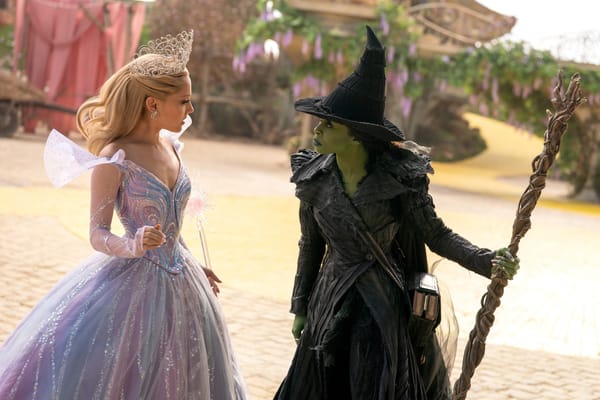TIFF 2024: Brady Corbet’s ‘The Brutalist’ Is a Breathtaking Achievement
Stephen David Miller shares his thoughts about The Brutalist, as well as other highlights and disappointments from the Toronto International Film Festival.
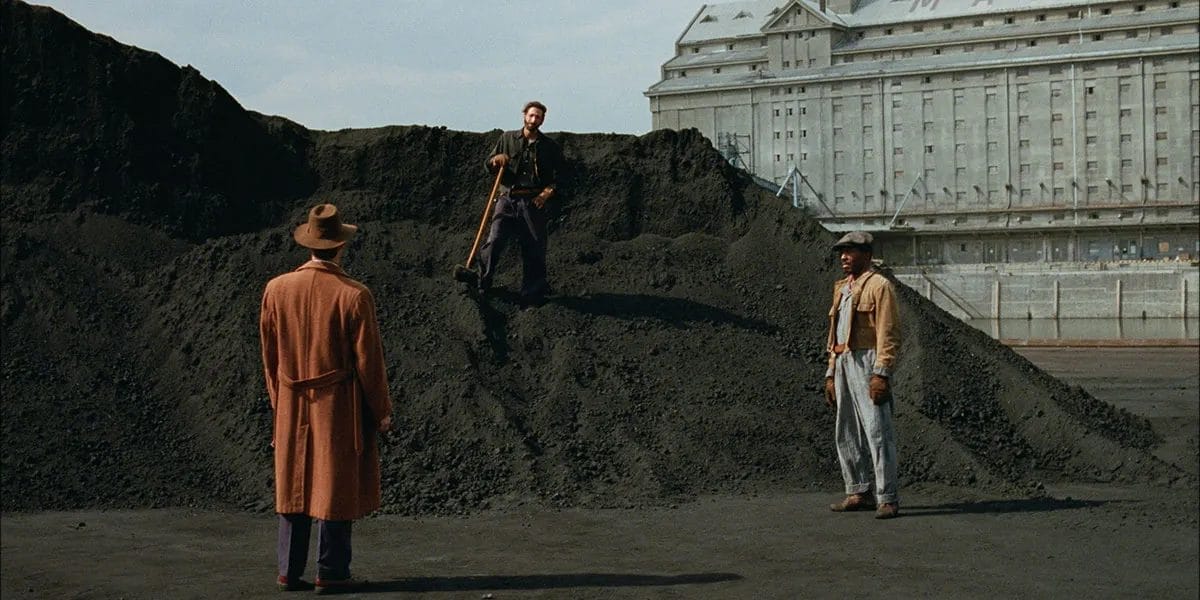
Hello, Decoding Everything readers! If you followed my coverage out of Cannes earlier this year, your impression of a film festival might be one of total chaos: mandatory costume changes, frenzied paparazzi, a schedule that relies on the generosity of strangers. But befitting American stereotypes about Canada, the Toronto International Film Festival is an altogether friendlier affair. There is no dress code to speak of, the press is less intrusive, and with each film screening multiple times throughout the festival, the fog of FOMO is significantly less acute. Perhaps most importantly, tickets can be booked over a week in advance, and each comes with a pre-assigned seat. That means no multi-hour lines, no uncertainty to navigate, and no choice between scarfing down dinner or being banished to the nosebleeds. It feels much more like going to your local movie theater for a sold-out screening…albeit a few dozen times, back-to-back.
Alongside its similarly-timed cousins, Venice and Telluride, TIFF is regarded as an awards season bellwether. This time around, though, the signals seem cloudy at best. Last year the SAG-AFTRA and WGA strikes largely had an impact on publicity, with fewer celebrity appearances resulting in less overall buzz. Now, the strikes seem to have rippled to the slate of films themselves. There aren’t many obvious frontrunners emerging from the lineup, and nearly every Q&A for a film with a recognizable American cast begins with some explicit reference to a waiver. Many of the biggest breakouts of the season are shaping up to be reprises from Cannes instead: Anora, The Substance, and Emilia Perez to name a few. For my thoughts on those, you can check out my earlier reviews.
Today, though, let’s do a quick rundown of the TIFF slate so far. Then, I’ll tell you about one of the few exceptions to my statement about frontrunners: Brady Corbet’s historical epic The Brutalist, which has arrived seemingly out of nowhere to take the festival circuit by storm.
Mid-Festival Snapshot: Highlights and Disappointments
The average quality of this year’s selection has felt slightly better than in years past, but the highs and lows are considerably less extreme. This means much of my film diet has existed somewhere in the middle: plenty of totally solid films I can recommend but wouldn’t shout from any rooftops.
Edward Berger’s Conclave is a tense papal drama with strong performances from Ralph Feinnes and Stanley Tucci, though I found myself wanting slightly more narrative momentum. The survival thriller Eden sees Ron Howard entering uncharacteristically dark terrain, and features killer, campy turns from Vanessa Kirby, Jude Law, and Ana de Armas. In place of J.D. Vance, Howard offers us murderous dogs, feral hogs, and a penis meant as comic relief: a leap forward in quality if ever there was one. Mike Flanagan’s The Life of Chuck is a lovely Stephen King adaptation in the key of Stand By Me; its reliance on voice-over narration is my only real complaint, but it’s a big one. William Bridges’ All Of You is a futuristic rom-com that walks a gutsy emotional tightrope. It lives or dies on the chemistry between Brett Goldstein and Imogen Poots, and they largely pull it off.
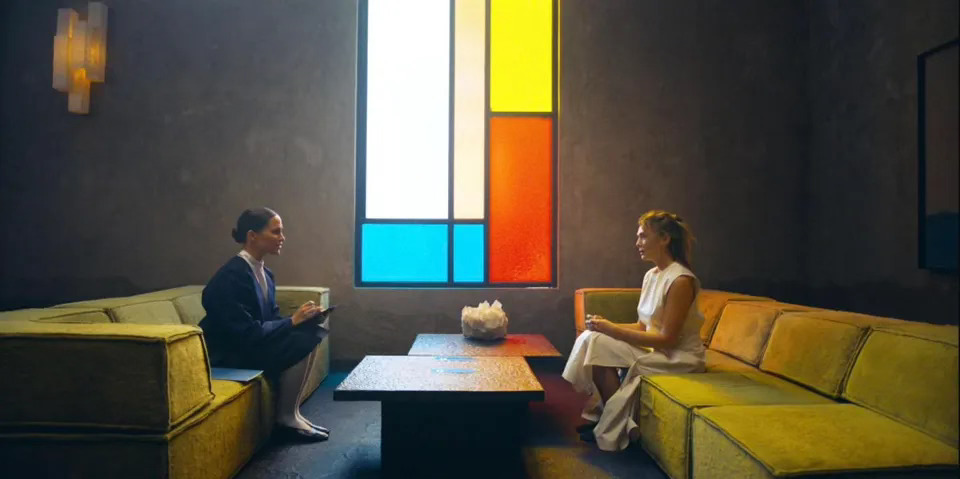
A few titles stirred more passion in me. Here are three highlights:
- The Assessment is my most pleasant surprise of the festival so far. Set in a dystopian future where only a tiny percentage of couples are allowed to have children, Fleur Fortuné’s directorial debut functions both as a sci-fi and an absurd deconstruction of relationships. In each category, she excels: Think The Lobster with a dash of The Creator. Elizabeth Olsen and Himesh Patel are great in their roles as prospective parents, but the defining performance belongs to Alicia Vikander, who plays the government employee sent to assess their fitness. The word “fearless” gets tossed around too easily in film discourse, but this time it very much applies—and to tell you why would spoil half the fun.
- Gia Coppola’s The Last Showgirl, on the other hand, is less of a surprise than it is a soothing cup of cocoa: I expected it to win me over, and it did. Pamela Anderson stars as a Vegas performer who learns her show is closing after over 30 years on The Strip, forcing her to reckon with her history and her present. As a meditation on the fleeting value society places on women’s beauty, the meta-narrative of Anderson’s casting is irresistible. She delivers what will rightly be seen as a comeback performance. Throw in Coppola’s sensitive direction, an understated supporting turn from Dave Bautista, and one particular scene with Jamie Lee Curtis that’s so powerful it could be an entire feature in its own right, and you’ve landed directly in my wheelhouse.
- Meanwhile, the most fun I’ve had at the festival so far was served up by Heretic. Having already seen the trailer for the upcoming A24 release, I was pretty sure I knew what I was in for: a religious-tinged riff on Saw that substitutes Hugh Grant for Tobin Bell. And while I wasn’t too far off in theory, I’m happy to report that I severely underestimated its commitment. Scott Beck and Bryan Woods’ film is less a “religious-tinged” horror than it is a feature-length exploration of faith, doubt, and organized religion that happens to also indulge in a jump scare or two. Meanwhile, Hugh Grant is far more than Jigsaw’s pen pal from across the pond; he’s dialed in, hilarious, and clearly having the time of his life. A split-second expression of his could send my audience into fits of nervous laughter, while a fiendish line delivery could stop them in their tracks. If you’re in the market for a delightfully twisted genre flick that also doubles as an Exvangelical therapy session, look no further.
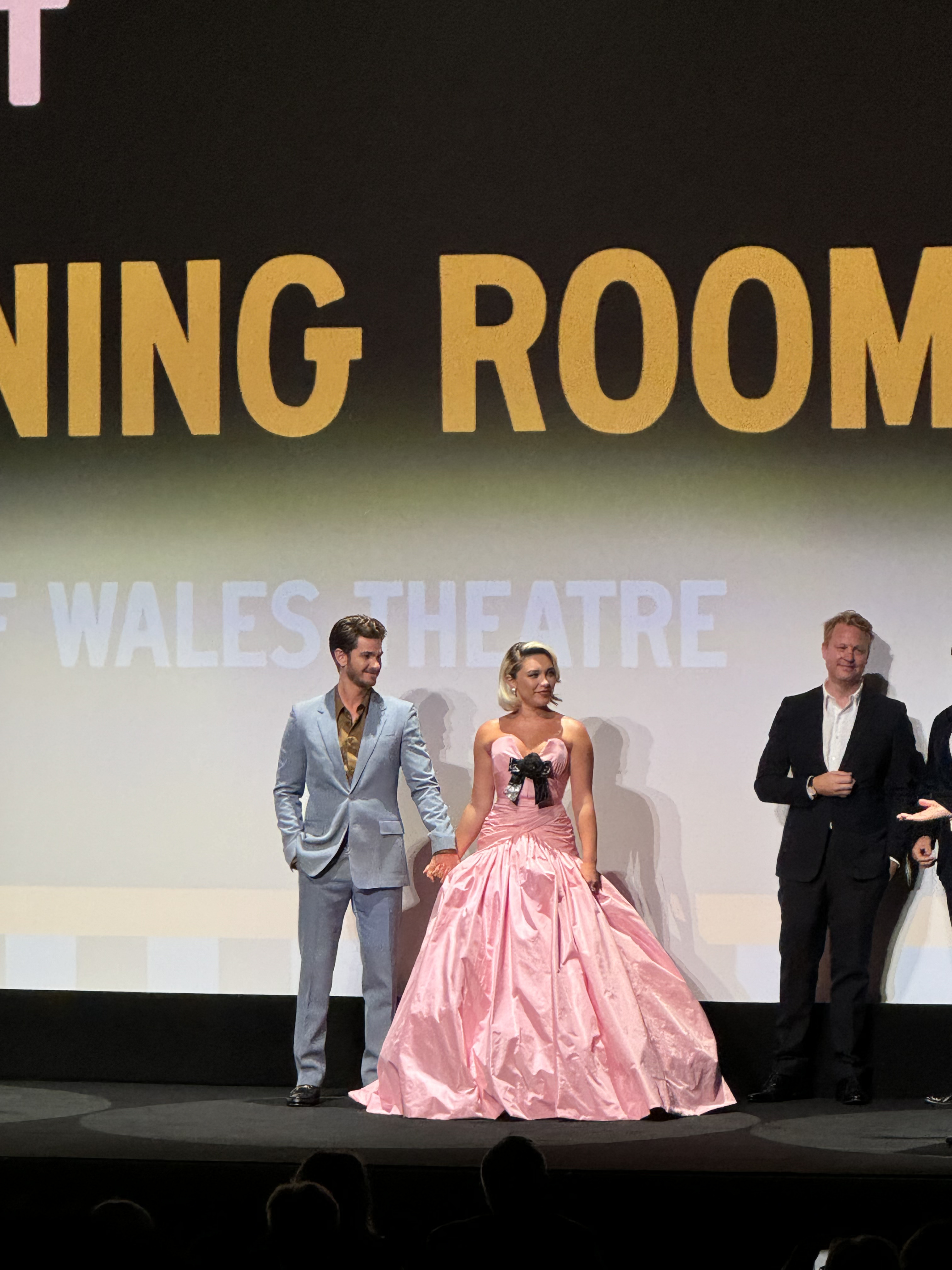
On the flip side, here are two disappointments:
- Look, I’m not pretending to be wholly immune to the charms of We Live In Time. Florence Pugh and Andrew Garfield are adorable, and I’m not entirely dead inside. My heartstrings were tugged once or twice; had I been slightly more hydrated, a full-fledged tear might have formed! But I can’t shake the feeling that John Crowley’s crowdpleaser is the “Oops! All Berries” of weepy rom-coms—and not only because Garfield’s character sells cereal for a living. No, the berries here are narrative crescendos. Rather than depict the core of a real, human relationship, Crowley uses a time-jumping structure to feed us solely with dramatic movie moments: a meet cute, a break-up, a cancer diagnosis, a pregnancy, a proposal, etc. It’s just climax after climax after climax, chopped and rearranged with little discernible emotional logic beyond keeping the good cries rolling. It feels cheap and undercuts the authenticity its leads have clearly worked to cultivate. There’s enough lovely acting on display to make me mildly recommend it, but personally I’m still recovering from the sugar high.
- The Room Next Door won the top prize at Venice a few hours before my screening; it’s also, by a fairly wide margin, my least favorite film of the fest. Which is a bit of a shock, considering my love for its component parts: Pedro Almodóvar behind the camera, Tilda Swinton and Julianne Moore in front, teaming up to make the auteur’s first English language feature. But the result is, frankly, bewildering. While conventional wisdom is blaming the film’s polarizing reception on its mannered, stilted dialogue, I think its flaws run quite a bit deeper than diction. The whole thing strikes me less as a film than it does a bullet-pointed premise, with characters repeatedly telling us who they are but never bothering to show us. From open to close, I found it to be dramatically inert; and Almodóvar’s style, while still present, feels peripheral at best. I truly cannot understand what the Venice jury saw in this; especially given the other, glaring option they had in front of them. Speaking of which…
Review: The Brutalist
Some festivals are marathons; others are sprints. My first visit to Toronto was a sleep-deprived whirlwind, cramming 14 screenings and two international flights into a single long weekend. I limped across the finish line to my office that Monday morning, experiencing a combination of love and disgust I hadn’t felt since certain hangovers in college. A part of me was still vibrating, basking in the afterglow of a half-remembered good time; the rest didn’t want to so much as smell another movie for the rest of my life.
That same energy, which is survivable in short bursts, can be disastrous for a lengthier commitment. Like an athlete preparing for a difficult season, it’s important to strike a balance between pushing yourself and avoiding serious injury. In my case, that means setting a few defensive booking guidelines to preserve my movie-loving muscle. No early-morning screenings after midnight premieres. No change of venues so tight it could leave me counting down the seconds until the end credits roll, or hyperventilating in my seat just as the next one is starting. No more than two consecutive soul-crushing dramas without a lighthearted chaser. And most importantly, no 3-and-a-half hour movies about architecture with the word “Brutal” in the title.
A committed rule follower, I didn’t originally have The Brutalist in my schedule for this year’s fest. But in the wake of its premiere just over a week ago in Venice, the chatter online grew overwhelming. Critics and casual viewers seemed to be equally enthralled, using language like “novelistic,” “triumph,” and “masterpiece.” Breathless five-star Letterboxd reviews declared Adrien Brody a lock for the Oscar while praising Corbet for birthing a work of art that was destined to be studied for generations. The only point of disagreement seemed to be whether this was the 21st century’s answer to The Godfather, or merely the greatest achievement in American film since There Will Be Blood. So, like, no pressure, right? Runtime and subject matter notwithstanding, I knew I needed to see what all the fuss was about. So after entering a fugue state on StubHub that saw me violate every guideline in my arsenal, I had a shiny new schedule that included this week’s premiere.
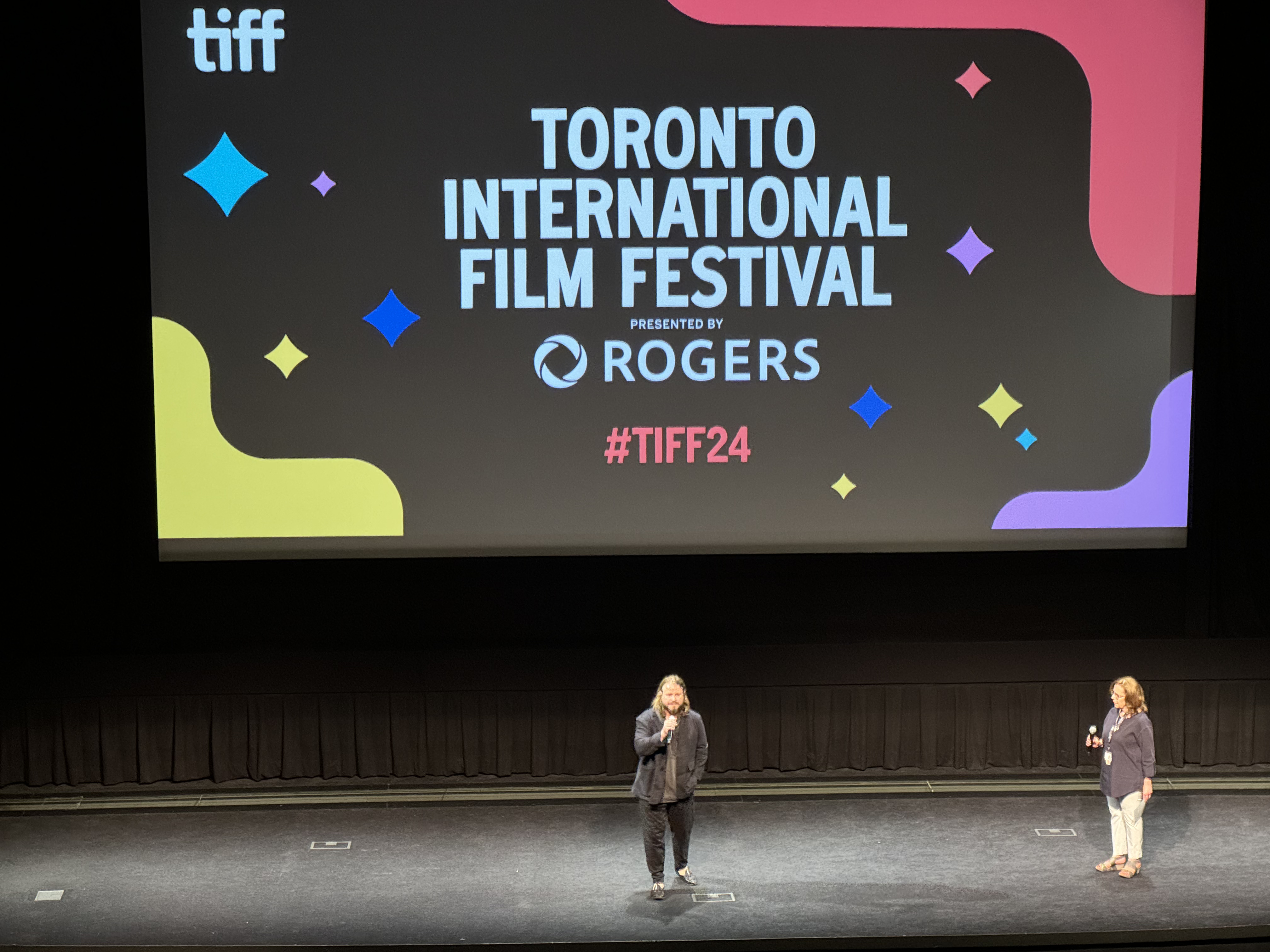
Although the buzz was exciting, it also filled me with a healthy dose of dread. After all, this sort of highfalutin language can spell disaster for a movie: Even the great films can buckle under pressure. So when I tell you that The Brutalist comes pretty damn close to living up to the hype, I mean it as a serious compliment. Corbet’s epic entered the festival with the weight of the world bearing down on it, and it not only stood up to it, it made it seem effortless, towering above the discourse like some sort of metaphor for architecture. This may not quite be The Godfather of my generation, but taken on its own terms, it’s an exhilarating feat.
The first thing worth celebrating about The Brutalist is the fact of its existence. Consider the elevator pitch for this production. It’s a historical drama with a runtime longer than The Irishman, centered around a (fictional) Hungarian Jewish immigrant named László Tóth and his quest to build a (fictional) landmark. It was shot in Europe, entirely on 35mm film, using equipment and techniques that were designed in the 1950s. It’s helmed by an actor-turned-director who carries some cachet among cinephiles but is hardly a household name (Corbet’s previous features grossed under $2MM combined). And the architectural style the film celebrates isn’t exactly known for its populist appeal, less associated with “pretty” in the public imagination than it is “oppressive,” “cold,” or “looming.” There are a thousand different reasons this project could have withered in the current cinematic landscape. And yet here it stands, demanding our attention.
Also demanding attention is the film’s stellar cast. Guy Pearce, whose performance in The Shrouds ranked among the worst I’ve seen all year, is pitch-perfect here as Harrison Lee Van Buren—a multimillionaire tycoon/buffoon with delusions of artistic discernment. Felicity Jones imbues László’s wife, Erzsébet, with an emotional ferocity unlike anything I’ve seen from her to date. This is about as far from the hagiographical fare of The Theory of Everything or On The Basis Of Sex as one can imagine: intense and unpredictable. And anchoring nearly every scene is Brody, who indeed seems like a lock for this year’s Oscar. The range he demonstrates with László is enough to give you whiplash. Within the first few minutes we’ve already seen him sit in dignified silence, give monologues about his artistic vision, weep uncontrollably, get piss drunk and dance. But none of those swings come off as broad or awards-baiting in the slightest. Even before we know much of anything about the man, we believe him as a flesh-and-blood person. There are always more layers of moral complexity to unearth, and Brody reveals them beautifully as the saga unfolds.
Befitting a story about artistic creation, the most inspiring aspect of The Brutalist is the filmmaking itself. This is the sort of audacious work you might expect from a titan of New Hollywood with a blank check at their disposal; having seen and liked Vox Lux, I still had no idea Corbet had it in him. There isn’t a dull or unnecessary shot in the entire runtime. Everything is bold, intentional, as vibrant and varied as the story it aims to tell. There are montages of buildings framed at sharp, striking angles; wide shots of landscapes and light-filled interiors that feel wistful, poetic; claustrophobic long takes in the style of Son of Saul that cling to László through jazz bars and passenger ships and gleaming marble quarries. Shot on VistaVision stock and projected in 70mm here at TIFF, it has a texture that feels genuinely timeless—if there’s any justice in this world, DP Lol Crawley will be swimming in cinematography nominations this year. The narrative, too, is equally electric, always shifting gears before the audience can anticipate it. Every time I felt I had a handle on the type of story I was watching (a sweeping immigrant saga, an Ayn Randian parable about uncompromising expression, a cautionary tale about inwardness in the vein of Synecdoche, New York, an exploration of the rot at the heart of American industry like, yes, There Will Be Blood), Corbet and Mona Fastvold’s script pulled the rug out from under me. What I’m left with isn’t easy to explain. Less a message than a monument. It’s an immense work of art designed to linger in memory, inviting you to piece together meaning from its structure.
Despite the heavy praise I’m heaping on it, I don’t believe The Brutalist is a perfect film by any means. I find the first half much stronger than the second—contrary to a sentiment one character utters in the film, the journey here is significantly more jaw-dropping than the destination. And as much as I admire Corbet’s confidence, I do think he still shows an occasional lack of faith in his audience, letting characters communicate via monologue what had already been said more sharply without words. But for a project of such overwhelming scale, it’s hard for my criticisms to leave much of a dent in the materials. Like the Megalopolis I imagine once existed in Francis Ford Coppola’s head, this achievement is simply too ambitious, too titanic to ignore. Even when it’s flawed, it’s unassailable.
Stephen David Miller is a film critic in California and the co-host of the podcast, The Spoiler Warning, where you can listen to him discuss some of the films above.
Stuff David Chen Has Made
Hey folks: David Chen here. I’m in Los Angeles on a brief vacation at the moment but wanted to mention a few things as we had off into the weekend:
- [PAID ONLY] On my Patreon page, my wife and I discussed the first Presidential debate between Donald Trump and Kamala Harris. Listen here.
- On Decoding TV, we discussed George R. R. Martin’s recent criticism of House of the Dragon and speculated on what exactly might be driving some of his actions.
- On The Filmiest, we reviewed Beetlejuice Beetlejuice, which my co-hosts liked well enough, but I found to be a pretty big disappointment.


